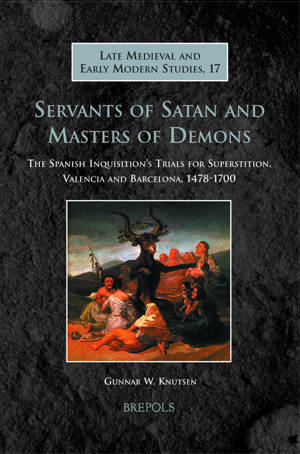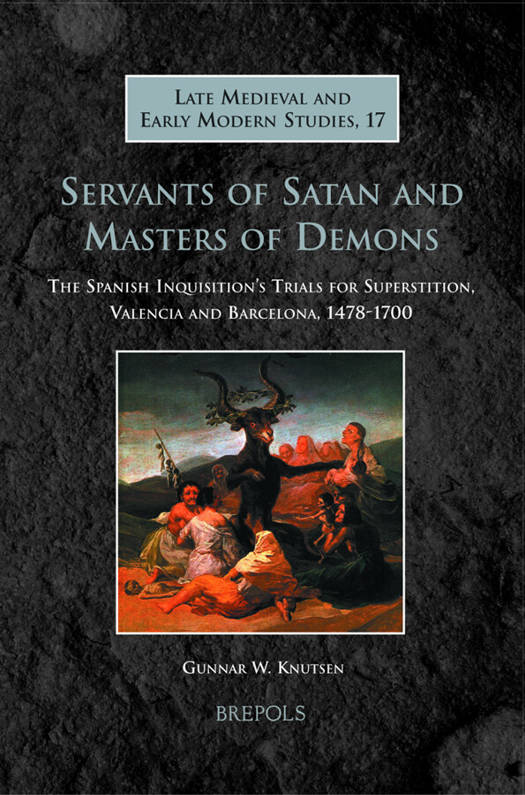
- Afhalen na 1 uur in een winkel met voorraad
- Gratis thuislevering in België vanaf € 30
- Ruim aanbod met 7 miljoen producten
- Afhalen na 1 uur in een winkel met voorraad
- Gratis thuislevering in België vanaf € 30
- Ruim aanbod met 7 miljoen producten
Zoeken
Lmems 17 Servants of Satan and Masters of Demons, Knutsen
The Spanish Inquisition's Trials for Superstition, Valencia and Barcelona, 1478-1700
Gunnar W Knutsen
€ 74,20
+ 148 punten
Omschrijving
This book offers a systematic study of the trials for superstition in the Spanish Inquisition's two tribunals in Valencia and Barcelona in the period 1478-1700. One of the most intriguing contrasts between the trials in northern and southern Spain is that while both areas saw a large number of trials for superstition, Valencia did not conduct trials for demonological witchcraft. Catalonia, on the other hand, saw a large number of such trials, the majority of which occurred in secular courts. These contrasts bring into focus significant differences in culture and mythology. The Barcelona Inquisition was unable to enforce its jurisdiction over trials for diabolical witchcraft, while the Valencian Inquisition was able to do just that because Valencians rejected the demonological concept of witchcraft. This was due mainly to the Valencians' own magical culture which emphasized man's ability to control and force demons, but also to the fact that Moriscos formed the majority of the rural population, which was the primary focus of witchcraft trials in Europe. By comparing the Catalan and Valencian tribunals, the book thus seeks to explain the absence in the southern half of Spain of brujas, witches who gave their souls to the devil, flew through the night, took part in wild orgies at the witches' sabbat, and caused death and destruction through magical means.
Specificaties
Betrokkenen
- Auteur(s):
- Uitgeverij:
Inhoud
- Aantal bladzijden:
- 227
- Taal:
- Engels
- Reeks:
- Reeksnummer:
- nr. 17
Eigenschappen
- Productcode (EAN):
- 9782503528618
- Verschijningsdatum:
- 31/03/2010
- Uitvoering:
- Hardcover
- Formaat:
- Ongenaaid / garenloos gebonden
- Afmetingen:
- 163 mm x 239 mm
- Gewicht:
- 544 g

Alleen bij Standaard Boekhandel
+ 148 punten op je klantenkaart van Standaard Boekhandel
Beoordelingen
We publiceren alleen reviews die voldoen aan de voorwaarden voor reviews. Bekijk onze voorwaarden voor reviews.







